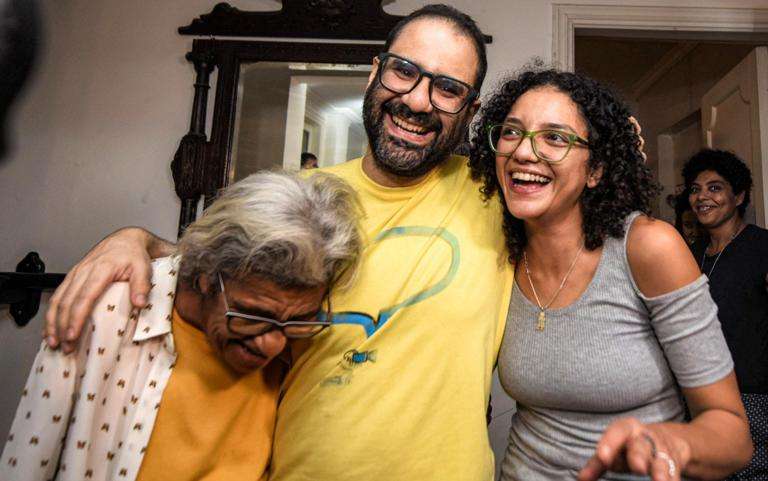In a landmark development, Egypt has granted a presidential pardon to its most high-profile political prisoner, Alaa Abd el-Fattah, a British dual national and a leading figure of the country’s 2011 uprising. After enduring nearly a decade behind bars, his release on Tuesday morning brings an end to a long-running saga that has drawn international condemnation and strained diplomatic relations with the United Kingdom.
President Abdel Fattah al-Sisi's decision to pardon Abd el-Fattah and five other prisoners follows a recent petition from the National Council for Human Rights, a move that signals a potential shift in the government's approach to human rights.
The news was confirmed by state-linked media, including Al-Qahera News, which stated, "The Egyptian president issues a pardon for the remainder of the prison sentence for a number of convicted persons... The pardon includes... Alaa Ahmed Seif El-Islam Abd el-Fattah."
The release was a moment of immense relief and jubilation for his family, who have campaigned tirelessly for his freedom. His sister, Mona Seif, shared the news on social media platform X, posting a photograph of a smiling Abd el-Fattah embracing his mother, writer Laila Soueif, and sister Sanaa Seif in Cairo. "An exceptionally kind day," she wrote. "Alaa is free." Sanaa Seif added, "OMG, I can’t believe we get our lives back."
Abd el-Fattah, a 43-year-old software developer and blogger, rose to prominence during the 2011 Arab Spring protests in Tahrir Square, where his online activism and pro-democracy campaigns made him a symbol of dissent. However, his advocacy led to his repeated imprisonment under successive Egyptian governments. He was sentenced to five years in 2015 for protesting without permission, and after a brief release in 2019, he was rearrested and sentenced to another five years in December 2021 on charges of "spreading false news."
His continued detention, which UN investigators had declared "arbitrary and illegal," became a major point of contention. His family argued that he should have been released in September of the previous year, with his pre-trial detention time factored into his sentence. However, authorities refused, extending his imprisonment until 2027 and prompting a renewed push for his release.
The campaign for his freedom gained significant international traction, with human rights organizations like Amnesty International and Reporters Without Borders advocating on his behalf. The British government also repeatedly intervened, with British Foreign Secretary Yvette Cooper stating, "I'm grateful to President Sisi for this decision. We look forward to Alaa being able to return to the UK, to be reunited with his family." British Prime Minister Keir Starmer had also made securing his release a foreign policy priority.
In a recent and significant legal victory, a Cairo criminal court removed Abd el-Fattah from the national terrorism list, ruling there was no evidence linking him to the outlawed Muslim Brotherhood. The decision, which also lifted a travel ban and unfroze his assets, was seen as a crucial step towards his eventual release.
Despite being a British citizen, it remains to be seen whether Abd el-Fattah will be allowed to travel to the UK to be reunited with his teenage son, Khaled, who lives in Brighton. His lawyer, Khaled Ali, has indicated that the removal from the terrorism list could pave the way for his travel, but the situation remains uncertain.
Abd el-Fattah's case highlights the ongoing struggle for civil liberties and human rights in Egypt, where peaceful dissent is often met with harsh crackdowns and imprisonment. His pardon is a testament to the immense pressure from his family, lawyers, and the international community, yet thousands of other political prisoners remain incarcerated, underscoring the long road ahead for meaningful reform in the country.








.svg)

